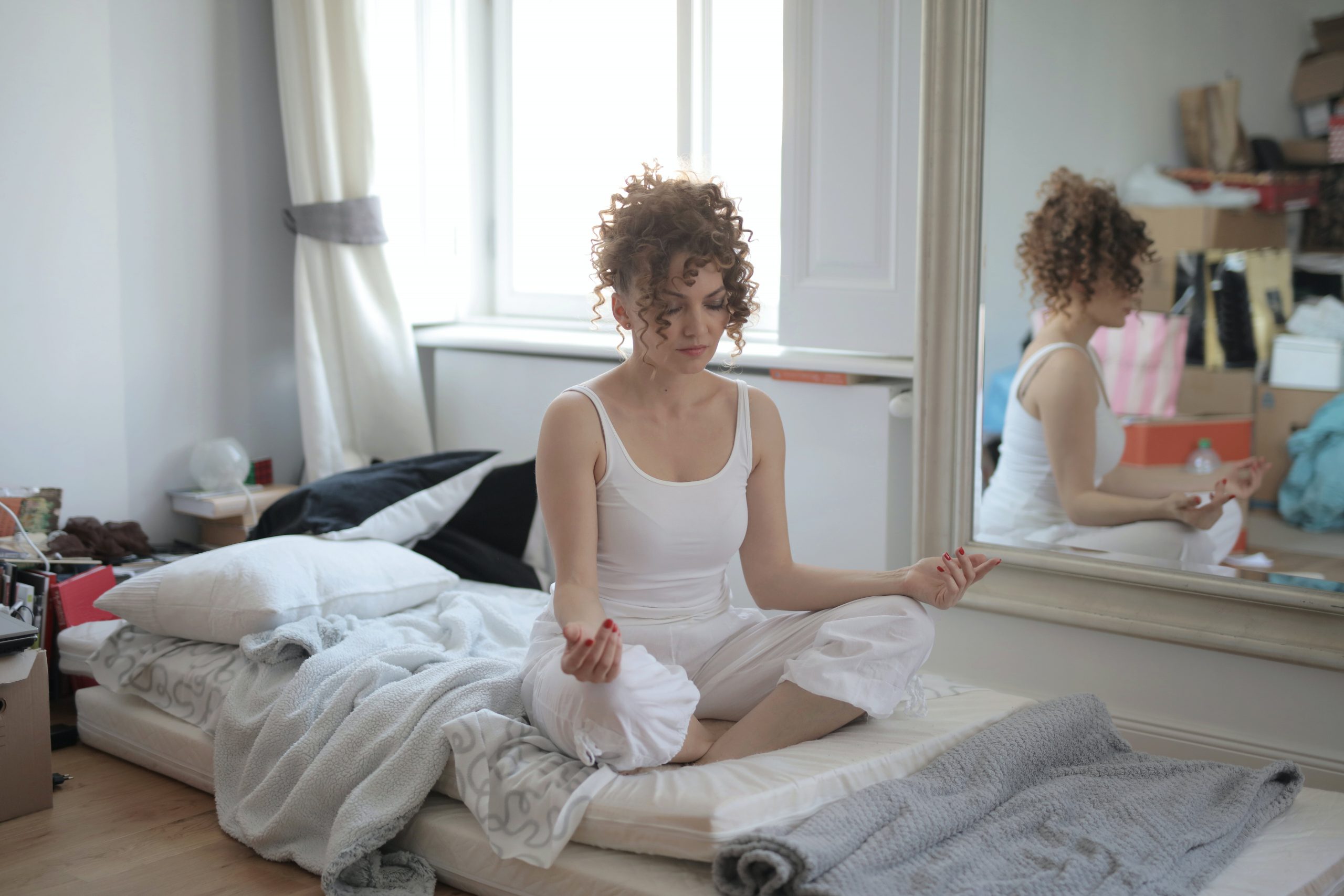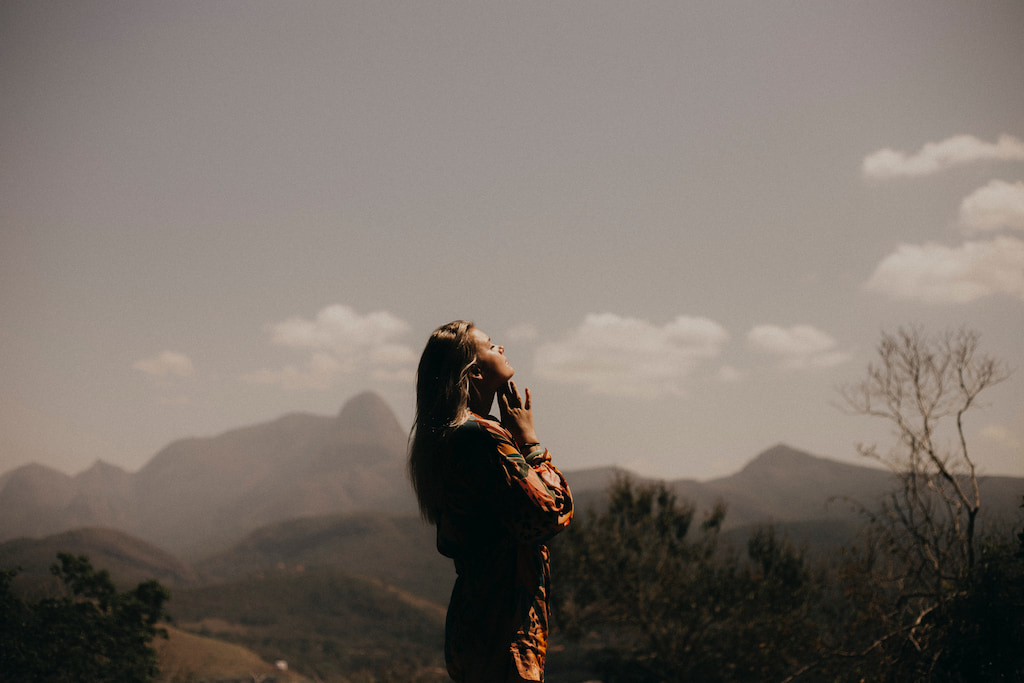5 Areas of Your Life That You Can Improve with Mindfulness

Contents
Over the past few years, we’ve heard a lot about mindfulness, mindfulness techniques, and meditation. As we deal with the stress and anxiety caused by our busy lives, we are all looking for new paths to freedom and inner peace — and mindfulness is a great way to achieve this. Mindfulness is the ability to be fully aware and present without becoming overwhelmed by what’s happening around us. And we all have the innate ability to do this. As a concept, mindfulness is highly linked to meditation. So, what’s the difference between mindfulness and meditation? How can we make mindfulness a part of our daily life? Let’s find out.
Mindfulness vs meditation
As meditation, yoga, and relaxation use similar techniques, it’s not always easy to understand what mindfulness is and what it is not. Mindfulness — or the art of being fully present in the moment — enables us to look inside ourselves, without judgment. As we observe and accept our true selves without over-thinking, we notice the sensations and feel the power of the present moment. It’s like taking a long walk in the woods, in nature, accepting things for what they are.
When practiced regularly, mindfulness meditation has the power to help us accept ourselves as we truly are. Our masks fall away as we open our eyes to our soul. We learn to accept and let go of what no longer serves us — which is where happiness resides.

Areas where mindfulness can help
When we are more mindful, we approach the world with fresh eyes, which reduces stress and anxiety. Our thoughts become clearer, more in line with our vision of life, or life purpose. Our performance and insights improve too, as we clear away the noise, wrong thinking, and beliefs that limit us. It has also been proven that practicing mindfulness can lower blood pressure, and improve memory and cognitive skills while reducing heart disease and chronic pain. As a result, almost every aspect of our lives can be profoundly altered when we embrace mindfulness techniques and slowly begin to meditate each and every day.
Mindfulness improves the workplace
Mindfulness practice helps sharpen our skills, readjust our priorities, and balance our work life. It allows us to identify and focus on what’s important — not just what’s urgent. We slow down and forget about multi-tasking, which is draining, and we prioritize doing one thing at a time — the true catalyst for high productivity. Mindfulness also enhances our emotional intelligence — which is our capability to comprehend our own emotions, sensations, and feelings, as well as understanding more about other people’s emotions, sensations, and feelings. This leads to better relationships with our peers, colleagues, and bosses, improving connections in the workplace.
Helping out with family issues
Family life can be draining, stressful, hectic, and full of conflict. In my case, I come from a broken home. Chaos, fights, hate, and destruction were a daily part of my family life. People from broken homes can become weak, insecure, hypersensitive, and stressed. As the years pass and we learn about mistakes — ours and others — we understand the true nature of our family. Mindfulness gives us tools to allow forgiveness to enter our hearts. As we forgive and forget, we grow. And forgiveness brings positive change. Acceptance and letting go of hate reveals new paths to build something new. Today, my relationship with my mum, which was full of conflict for over 20 years, has become healthy, friendly, and happy — as I learned forgiveness thanks to mindfulness and meditation.
Improving our relationship with others
As mindfulness helps us to see the truth, we no longer feel suspicious of other people. We accept them for who they are and understand that each of us sees the world in our own way. Embracing differences and cultivating open-mindedness through mindfulness enables us to build healthier relationships. Jealousy, rivalry, vanity, or betrayal can be better understood with mindfulness. As we grow, we keep those who matter to us within our circle and let go of toxic people, and, consequently, our relationships improve exponentially. We learn to set boundaries to protect ourselves without being afraid of disappointing others, and can manage stress, expectations, and our vision of friendships without fear. Furthermore, deep meditation practices help empathy, compassion, and gratitude enter our life.

Enhancing self-love and embracing the happiness within
We tend to believe that others are responsible for our happiness, joy, and inner fire. But true happiness actually lies within. It’s already there, inside you, and can be tapped into each day just by taking small steps and actions that bring positive change. Mindfulness enables us to love ourselves more — or, in fact, better — just as we are. We are not perfect. We are human beings. We have flaws. Of course, during the course of our lives, we need to learn, grow, and change. But we can’t force ourselves to be what we are not. Each of us has dignity, space, beauty, and limits. Mindfulness helps us capture the true beauty inside us, and lets us accept that we neither can or should aim to be perfect.
It’s easy to start a daily mindfulness practice. We don’t need to attend a full meditation retreat — although immersion is highly recommended if possible — to become more mindful. Today, start trying out simple mindfulness techniques; if you set aside 5 minutes each day, you can become more mindful. Just by reading this article, you have already started on your path towards mindfulness!


